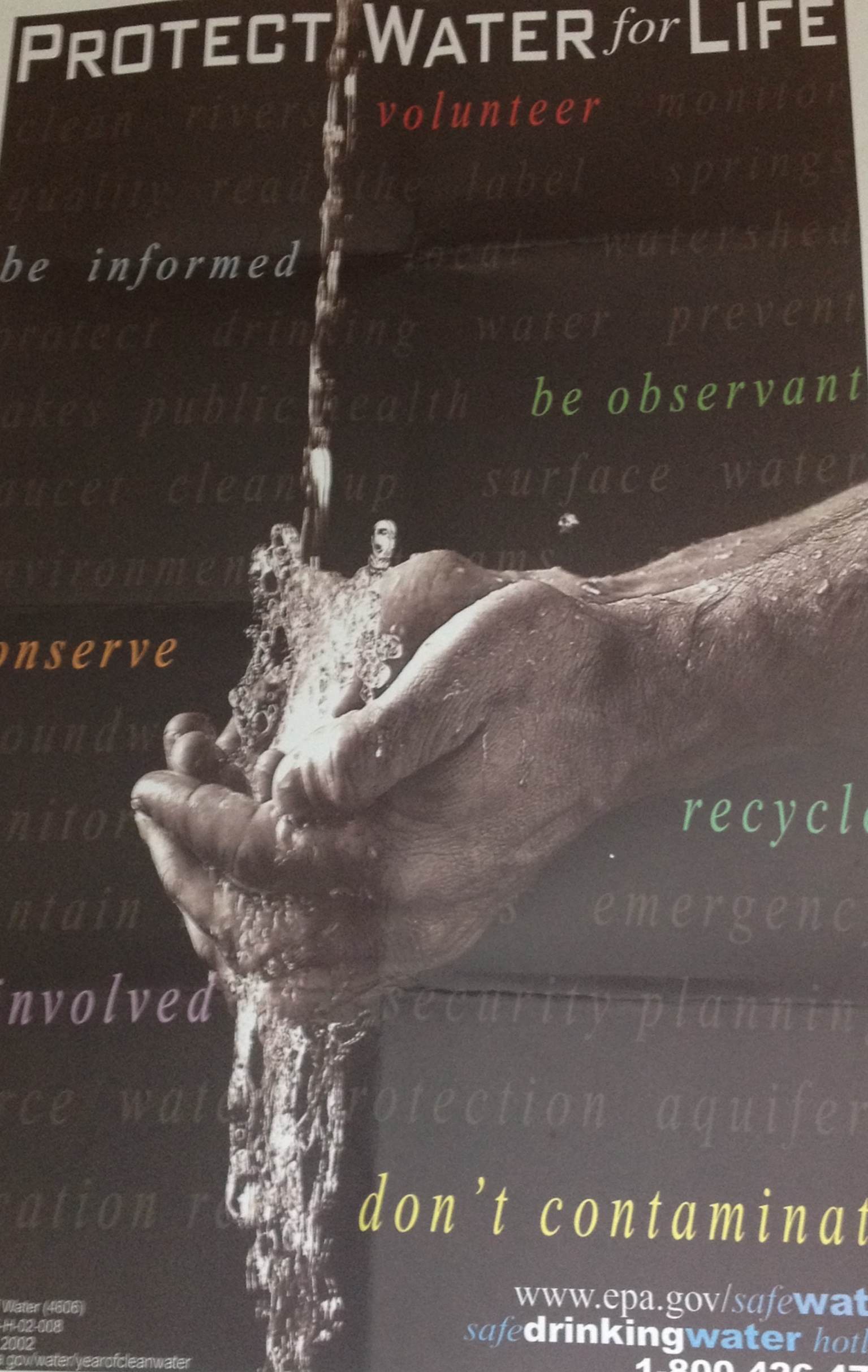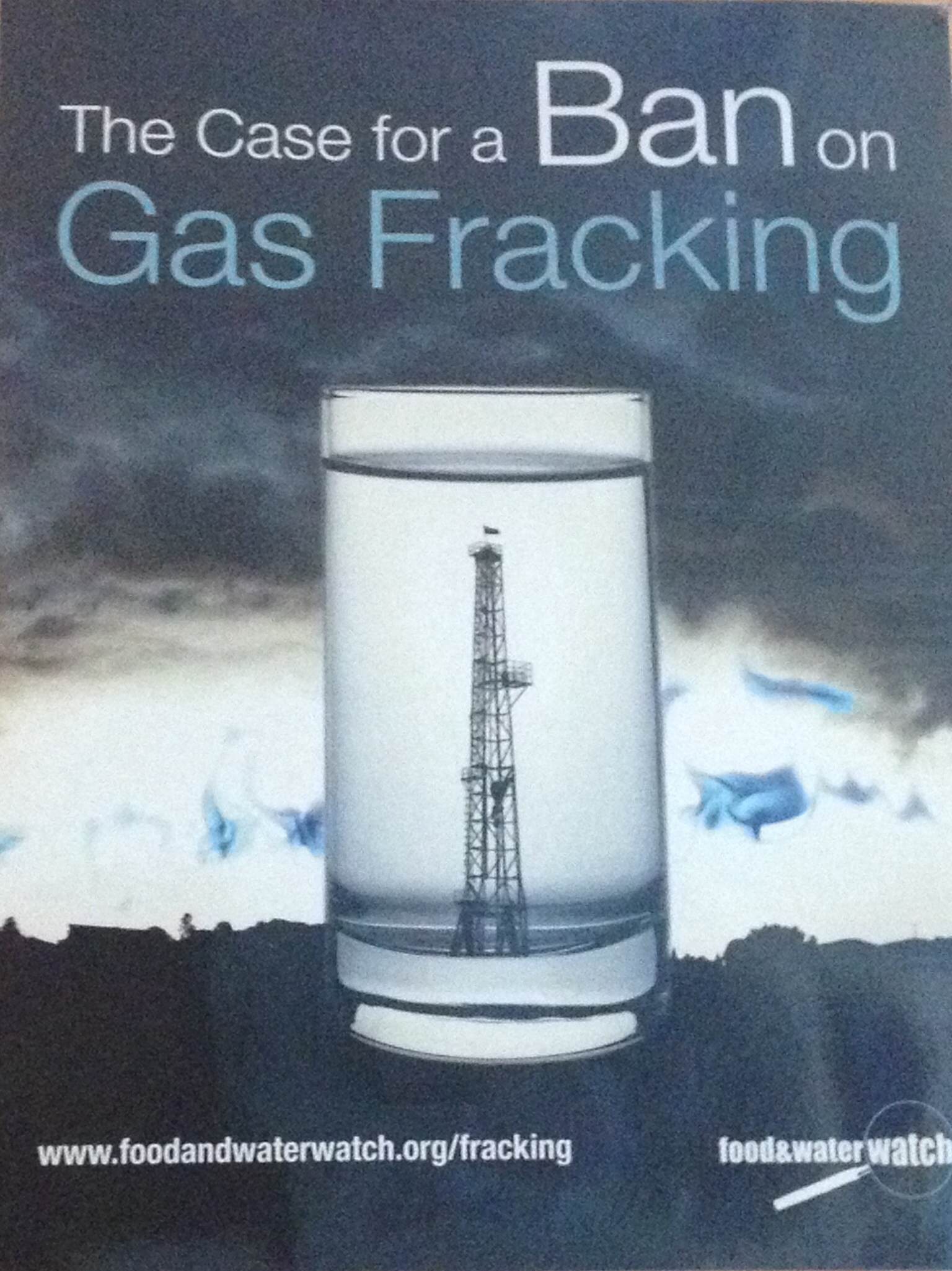You can only live a week, at maximum, without water. Actually, three to four days is a more conservative estimate. You can go maybe as long as three weeks without food, though you won’t look or feel to great. The World Health Organization estimates that 1.8 million human deaths are caused by waterborne diseases. Meanwhile, in May 2014, a salmonella outbreak across 26 states was linked to poultry by the CDC.
I’m not trying to be morbid. I’m trying to drive a point home: as much as we might say we “can’t live without” our pets, or our favorite shoes, or the best new Netflix series…. what we really and truly can’t live without is water and food. And not just any food and water, but good, clean, healthy and accessible food and water.
The organization I’m working for this summer understands this reality of necessity. Food & Water Watch is a national non profit that fights and advocates for policies that will protect and promote access to these fundamental rights. The group grew out of 12 employees originally based in the Energy and Environment Program at a different non-profit. Inspired by their work, they struck out on their own, and have since grown to more than 60 employees in 17 regional offices and a national headquarters in Washington D. C. Our mission statement reads as follows:
Food & Water Watch works to ensure the food, water and fish we consume is safe, accessible and sustainably produced. So we can all enjoy and trust in what we eat and drink, we help people take charge of where their food comes from, keep clean, affordable, public tap water flowing freely to our homes, protect the environmental quality of oceans, force government to do its job protecting citizens, and educate about the importance of keeping the global commons — our shared resources — under public control.
For my role this summer, the most important sections of that mission statement would read “keep clean, affordable, public tap water flowing freely to our homes”. If you don’t know yet, the City of Detroit has come under the control of an Emergency City Manager appointed by the governor of Michigan. In simplistic terms, the Emergency Manager has been scrounging the city’s resources looking for ways to cut costs, make profits, and lift the city out of bankruptcy. This might sound well and good… until you consider some of the “resources”being targeted. You might have heard of the danger the DIA’s art collection encountered, the possibility of being sold to the highest bidder. Well, the public system of water has come under the same danger. In the water world, we call this PRIVATIZATION. For a set cost, the city would give over management of the water system to a private entity to run and manage. The theory runs that private agencies are inherently more efficient and better run than public institutions, and will therefore save money for consumers and the city in the long run.
Huh. That last sentence sounds great! Right? But the problem is, though the theory might seem reasonable in those terms, it’s often very different in the real world. Since private agencies are at base motivated by profit, costs savings in system management are usually turned into profit for the company, not savings for the consumer. Meanwhile, those same cost cutting measures can lead to lost jobs, unsatisfactory water quality, and inequities in attention given to different communities. Examples of privatization gone wrong run the gambit from domestic (Case Study: Atlanta, Georgia) to international (Case Study: Bolivia).
Even before privatization starts, it can start causing waves…or lack of them. The City of Detroit has started shutting off water to residential properties behind on water bills, sometimes without notice, even when there are children, vulnerable individuals or the elderly in residence. Meanwhile, corporate, industrial and retail properties with overdue bills remain largely untouched, with taps running gung ho. Speculation abounds that these shut offs are being enacted in order to make the water system more attractive to private buyers, by ridding the water system of debt. It’s understandable that in order for water to come out, money must go in to the system… but is removing clean, running water from vulnerable populations the best way to go about it?
My research project this summer is working to support the opposition to privatization in Detroit, MI. I’m less on the organizing and advocating side of the equation, and more on the sniffing and digging and finding side. I’ll be looking at city of Detroit water rates, wholesale rate to municipalities and retail rates to consumers. I’ll be trying to extract information on shut offs and membership in affordability programs. Hopefully, armed with data, I’ll be able to do some analysis and put together a report.



Meanwhile, on the non work portion of my life, my first week in Detroit has been fantastic. I’ve been exploring the city, having experiences, and over all enjoying myself. Unfortunately, as my internship has been kicking into gear, I feel like I’ve been spending more time dissecting the cities problems than enjoying its vivacity…. but that just makes the moments I can grab all the more precious.






Hi Freida! I can’t tell you how jealous I am that you’re working at Food & Water watch! I loved what you did there with the beginning of your blog. It’s unbelievable just how much we need access clean water and yet how little that most people think about it (well that is unless you don’t have access to it). Food & Water Watch sounds like a great non-profit and I totally stand by the ideas in their mission statement. It unfortunate what this situation is in Detroit but I hope the city can find a good balance between economic growth and cost to the environment. It’s amazing how many facts you have in this post though, you must have been doing a lot of research the past few days and it sound like you’ll also have a lot more to come! In the meantime though make sure to enjoy Detroit and not let the problems here cloud your experience. Find another perspective to look at Detroit thought instead of a troubled environmental lens, for example Detroit is has a great Art scene going on, or you could even try to focus on positive environmental events that are happening in the city like the Eastern Market and Slow Roll! If Detroit is one thing, it’s progressive!